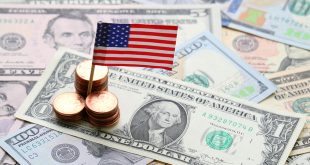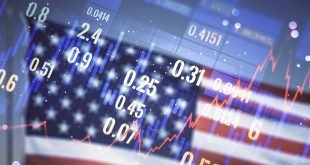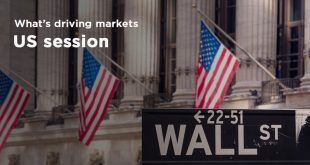The U.S. dollar edged lower on Tuesday, reflecting cautious sentiment as the country heads into a closely contested presidential election that could trigger significant foreign exchange volatility. The Dollar Index, which measures the greenback against a basket of six major currencies, fell by 0.1% to 103.655 at 04:10 ET (09:10 GMT). This decline follows an overnight drop to its lowest level since October 21, contrasting with last week’s highs at the end of July.
Dollar Retreats as U.S. Election Looms
The slight pullback in the dollar is partly attributed to the unwinding of the recent “Trump trade.” With polling indicating a tight race between Republican candidate Donald Trump and Democratic nominee Kamala Harris, investors are recalibrating their positions ahead of the majority of voting scheduled for Tuesday. In recent weeks, markets had leaned towards a Trump victory, driven by his tariff and immigration policies, which analysts view as inflationary. This anticipation had previously supported higher U.S. Treasury yields and bolstered the dollar.
Federal Reserve Rate Cut Expectations
Adding to the dollar’s decline, the Federal Reserve is set to meet later this week, with markets increasingly pricing in a smaller rate cut of 25 basis points compared to the substantial 50 basis points reduction in September. Investors are keenly awaiting any signals from Fed Chair Jerome Powell regarding the central bank’s future rate cut plans, especially in light of persistent inflation and a resilient labor market. While recent data suggests some deterioration in the U.S. labor market, which could prompt further easing, inflation remains sticky, complicating the Fed’s policy outlook.
Euro Gains on Dollar Weakness
In Europe, the euro strengthened against the dollar, trading 0.2% higher at 1.0893. This rise follows a previous session peak of 1.0914, the highest since October 15, benefiting from the dollar’s weakness. However, the euro faces headwinds from regional economic challenges, including a 0.9% decline in French industrial production for September and ongoing political uncertainty surrounding the U.S. election.
Sterling Strength as Bank of England Signals Rate Cuts
The British pound also saw gains, with GBP/USD rising 0.2% to 1.2980. This increase comes ahead of the Bank of England’s (BoE) scheduled rate cut of 25 basis points on Thursday. Investors are anticipating a more dovish stance from the BoE, which is expected to follow through on its commitment to support the economy amid persistent inflationary pressures.
Asian Currencies Mixed Amid Global Uncertainties
In Asia, the U.S. dollar continued its mixed performance. USD/JPY edged up slightly to 152.16, keeping the Japanese yen near its weakest level in three months. Meanwhile, USD/CNY inched up by 0.1% to 7.1077, as market focus shifts to the Standing Committee of China’s National People’s Congress (NPC) meeting. The NPC is expected to provide further insights into China’s fiscal stimulus plans, which are crucial for supporting the world’s second-largest economy.
Australian Dollar Strengthens Post-RBA Meeting
The Australian dollar gained 0.5% against the U.S. dollar, trading at 0.6618 AUD/USD, following the Reserve Bank of Australia’s (RBA) decision to keep interest rates unchanged on Tuesday. While the RBA maintained the benchmark cash rate at 4.35%, RBA Governor Michele Bullock delivered a more hawkish outlook during her news conference, highlighting ongoing inflation risks. This stance contributed to the AUD’s modest appreciation, as markets anticipate that the RBA will maintain a restrictive monetary policy stance to combat persistent inflationary pressures.
Market Outlook
As the week progresses, investors will closely monitor the outcomes of the U.S. presidential election and the Federal Reserve’s policy meeting for cues on future monetary policy directions. Additionally, developments from China’s NPC meeting and the Bank of England’s rate decision will continue to influence global currency markets. The interplay between these high-stakes events is expected to drive significant volatility and shape market sentiment in the days ahead.
 Noor Trends News, Technical Analysis, Educational Tools and Recommendations
Noor Trends News, Technical Analysis, Educational Tools and Recommendations





